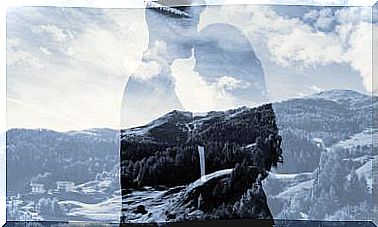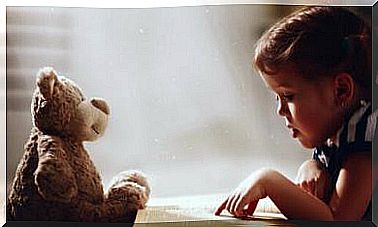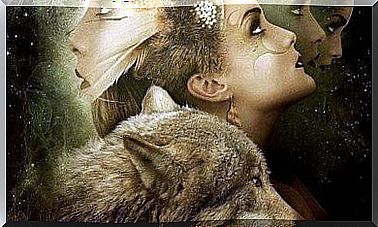7 Attitudes That Don’t Seem To Represent Fear, But They Do
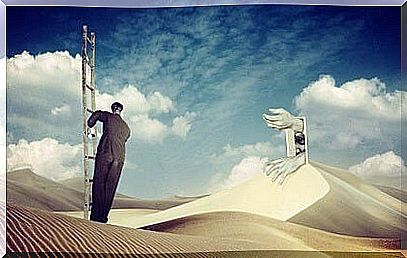
Fear is one of the most masked emotions. It does not always appear as what it is, precisely because of a kind of “fear of fear.” We are reluctant to admit that we are afraid, because we think this would increase it. That is why we use attitudes that do not seem to represent fear, but they do.
Fear, like other emotions , begins to overcome when its existence is assumed. Unfortunately many are not willing to do so, because they associate recognition with weakness. They do not want to see themselves or present themselves to others as vulnerable. That is why they adopt attitudes that do not appear to be fear, but that deep down reflect great fears.
Pretending that we are tough and almost invulnerable doesn’t help . On the contrary, it leads to fears taking more sophisticated and covert forms. This prevents us from detecting and working with them. That is why it is worth paying attention to those attitudes that do not seem to represent fear, but deep down they do. These are seven of them.
1. Too much planning
Planning is obviously a healthy measure that helps us organize ideas, save energy, and prevent problems. In principle, it is a healthy measure to limit uncertainty and act with more security.
However, when this is taken to the extreme it becomes one of those attitudes that do not seem to represent fear, but deep down they do. What exists in these cases is not a desire to organize things better, but an excessive desire for control. This is one of the masks of fear.
2. Impeccable manners
Good manners are a sign of good manners and make social relationships much easier. Courtesy never hurts and many protocols are a valid way to “break the ice”. It helps communication to be more fluid and human relationships to be on more friendly terms.
But when good manners are so excessive that they lead us to have imposed or robotic behaviors, much of this effect is lost. We may be so afraid of others that we protect ourselves from them by stressing how harmless we are.
3. Extreme caution, one of the attitudes that do not seem scary
It is similar to planning in excess, but in this case it does not refer only to actions that will be carried out in the future, but also to all present actions. It implies that before acting a doubt always appears.
Doubt, in turn, leads to foresee possible negative consequences. The result of this is that a person becomes so overly cautious that he hardly does anything. It is a form of fear that leads to extreme passivity and inaction.
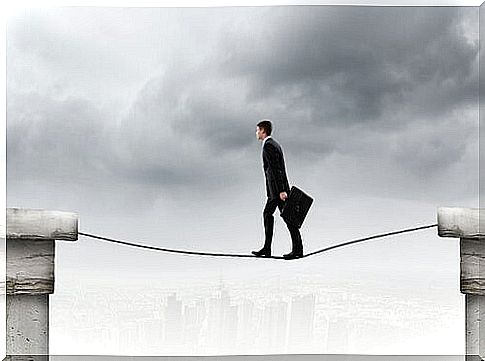
4. Avoidance of the new
We are all a little scared by what we do not know. Faced with the unknown, we do not know if it involves any risk and we are not clear if the personal resources we have will be sufficient to avoid or control possible threats.
It takes something, or a lot, of courage to move towards the new. Thus, when we allow ourselves to be invaded by fear, we end up settling and accommodating ourselves in the known. This produces, among other consequences, that we end up missing a lot of opportunities.
5. Ritualization of life
It is something similar to what was discussed in the previous point. We create rigid routines, not in order to live in a more organized way, but to keep everything that happens to us under absolute control. If someone questions us, we will say that we are very disciplined people and that we do not like to stumble around.
The truth is that this is another of those attitudes that do not seem to represent fear, but they do. Severe routines limit the unpredictable to some degree. But that does not mean that they eliminate it. What they do achieve is to outline our life and prevent the novelty from emerging.

6. Rejection of what is different
When you have too strict habits of life, it is usual that you also have rigid habits of thought. This sometimes makes us intolerant of other lifestyles or other unfamiliar values .
Under these conditions, it is easy for us to end up adopting prejudice as a guide. We are afraid of unfamiliar situations or people. We see them as a threat to our apparent stability. Deep down it is nothing more than fear of the idea of having to rebuild a good part of our schemes.
7. Disqualification of the foreign
Fear is also behind attitudes such as envy or excessive criticism of others. We can come to feel, without much reason, that other people question who we are. Simply being who they are becomes a question for us.
On the other hand, it is not uncommon for what we criticize in others to be a projection of our own limits and fears. We unconsciously compare ourselves with others and defend ourselves against that comparison. We end up looking only at the worst of the others as a form of justification.
Attitudes that don’t seem to represent fear, but do, end up becoming a way of disguising our fears. Perhaps, if we were a little more honest with ourselves, we could find or design ways that would help us to work those fears and, why not, to overcome them.
